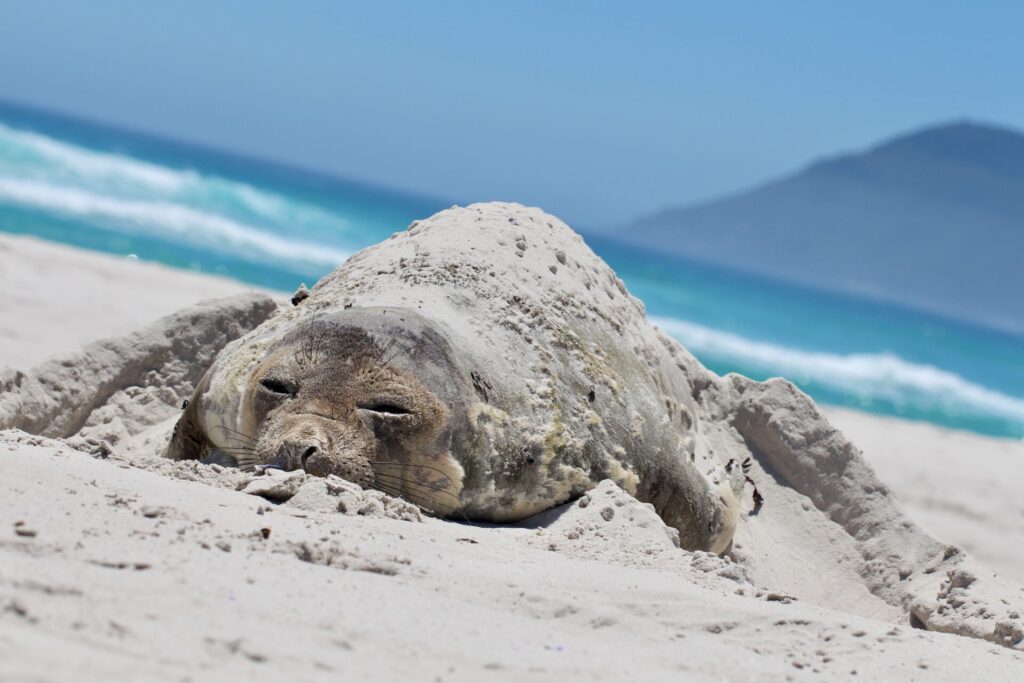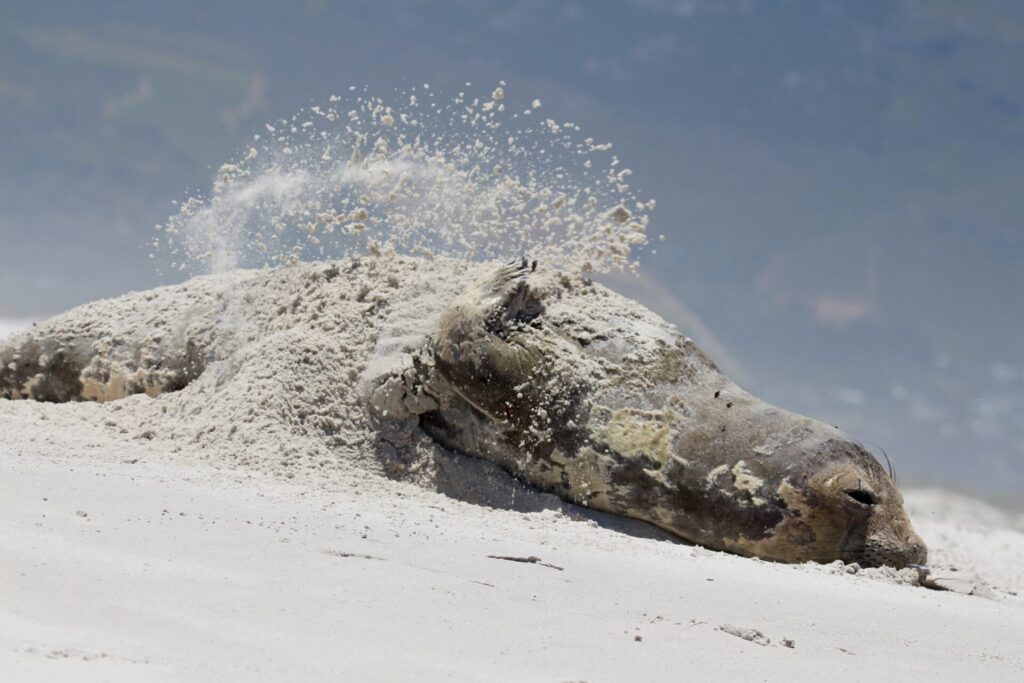Cape Town’s coastline has recently played host to some unexpected, heavyweight visitors. Over the past few months, Southern elephant seals, the largest seal species in the world, have been spotted hauling themselves onto local beaches, drawing fascinated crowds of both tourists and residents.
The City of Cape Town’s environmental management teams, in partnership with the Two Oceans Aquarium Foundation, have been closely monitoring the situation and working to educate the public on how to safely and respectfully observe these animals.
“These are truly magnificent creatures, and we are incredibly fortunate to witness them on our shores,” says Gregg Oelofse, Coastal and Environmental Manager at the City of Cape Town. “But it’s crucial that we all do our part to protect their wellbeing. They don’t need help, food or water – they need peace and space.”

A Rare but Important Phenomenon
Southern elephant seals are not native to South African waters. Their natural range spans the Southern Ocean, with breeding colonies concentrated on Subantarctic islands like South Africa’s Marion Island – more than 2,100 kilometres from Cape Town. Their presence here is considered rare and is classified as that of a vagrant species, which typically defines creatures that stray from their usual habitats.
The recent visitors are likely in the midst of their moulting phase – a natural and vital process during which the seals shed their top layer of skin and fur. Unlike many other mammals, elephant seals cannot regenerate skin and hair while submerged in cold water. Instead, they must come ashore for several weeks, relying on their fat reserves while their bodies undergo this intense biological transformation.
“Resting and moulting in peace is essential for these animals’ survival,” explains Martine Viljoen, Marine Wildlife Manager at the Two Oceans Aquarium Foundation. “Disturbance during this time can cause unnecessary stress, which could hinder the process.”

Public Safety and Seal Welfare
In response to growing public interest, the City and the Aquarium Foundation are urging beachgoers to follow a few key safety measures:
- Maintain a safe distance: Stay at least 20 metres away from elephant seals.
- Respect barriers: Do not cross any cordoned-off areas.
- No water, no noise: Pouring water on the seals or making loud noises causes stress.
- Control pets: All dogs should be kept on a leash and away from the animals.
“These guidelines are in place not only for the safety of the seals but for the public as well,” says Oelofse. “These are massive wild animals – adult males can grow up to seven metres long and weigh as much as five tonnes.”
Anyone who witnesses harassment or interference with an elephant seal, whether by people or their pets, is urged to contact the City of Cape Town immediately at 021 480 7700 or 083 940 8143.

An Important Moment for Conservation
The presence of these ocean giants is not only a rare sighting for Capetonians – it’s also a valuable opportunity to foster greater awareness about marine life and conservation.
“The excitement these seals bring can translate into deeper respect and understanding of the fragile ecosystems they represent,” adds Viljoen. “Let’s do everything we can to ensure they leave our shores healthy and undisturbed.”
As the southern elephant seals continue their moulting period along Cape Town’s shores, local authorities and conservationists are calling on the public to admire from a distance – and to give these gentle giants the space they need to return to the ocean safely.














